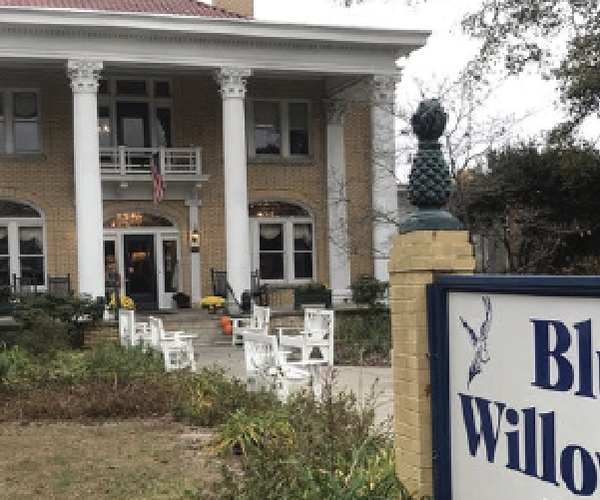COVINGTON, Ga. — Newton County’s hospital and its court system recently received separate shares of statewide COVID relief funding.
The Federal Communications Commission recently approved Piedmont Healthcare, the parent company of Piedmont Newton Hospital, among 68 applications for funding commitments totaling $42.7 million as part of the FCC’s COVID-19 Telehealth Program.
And the Judicial Council of Georgia Ad Hoc Committee on American Rescue Plan Act (ARPA) Funding has awarded grants totaling $24.8 million to 26 judicial circuits, including the Alcovy circuit which includes Newton County.
Piedmont Healthcare, a system of hospitals that includes Piedmont Newton Hospital, was awarded $197,789 for the purchase of remote monitoring kits including Bluetooth-enabled pulse oximeters, blood pressure devices, and scales, to provide improved remote care throughout the hospital system.
The FCC’s COVID-19 Telehealth Program supports the efforts of health care providers to continue serving their patients by providing reimbursement for telecommunications services, information services, and connected devices necessary to enable telehealth during the COVID-19 pandemic.
This round of funding is a $249.95 million federal initiative that builds on the $200 million program established as part of the CARES Act.
“As the impact of new variants continue to challenge our healthcare system, the FCC has worked diligently to review and approve funding commitments as part of our COVID-19 Telehealth Program,” said Chairwoman Jessica Rosenworcel. “As we head into 2022, the ability to treat patients and loved ones from the safety of their home is of vital importance.”
On Nov. 9, the FCC’s Wireline Competition Bureau issued a Public Notice announcing an opportunity for all remaining applicants to supplement their applications, as required by Congress. Remaining applicants had 10 days to supplement their applications which were then evaluated.
Meanwhile, judicial circuits which operate the court systems statewide submitted applications for ARPA funds allocated to the judicial branch.
The Committee accepted applications from Nov.10 through Nov. 30 for the award period beginning Jan. 1, 2022.
In October, Supreme Court of Georgia Chief Justice David E. Nahmias, also chair of the Judicial Council, announced the allocation of up to $110 million of ARPA funds by Gov. Brian P. Kemp to address backlogs of court cases, particularly cases involving serious violent felonies.
The Judicial Council is administering up to $96 million of that total for eligible courts, prosecutors, and related agencies. The remaining $14 million in ARPA funds is allocated to the Georgia Public Defender Council for grants to public defenders.
Requests from judicial circuits included funding for temporary personnel to respond to the case backlog, including senior judges and judges to serve by designation, assistant district attorneys, security personnel, victim support, and court reporters, funding for rental costs for temporary space to hold court, supplies and materials, and administrative staff to support grant administration.
Georgia’s judiciary operated under a Statewide Judicial Emergency Order from March 2020 through June 2021. The order placed necessary limitations on court operations to protect the health of those working in and coming to courthouses during this time but also resulted in a backlog of criminal and civil cases, particularly those requiring jury trials to resolve.
Since the order expired on June 30, 2021, courts have increased efforts to resolve cases, but the ongoing pandemic continues to limit the pace and scale of court operations as public health measures remain in place.
The committee, chaired by Presiding Justice Michael P. Boggs, is overseeing the application process for the grants and the Judicial Council’s Administrative Office of the Courts is facilitating the grant application, awarding, compliance, and reporting processes. The funds will be awarded on a calendar year basis, and all funds allocated to the judicial branch must be spent by Dec. 31, 2024.
“We look forward to supporting these circuits, and all future applicants, in their work,” Boggs said.





